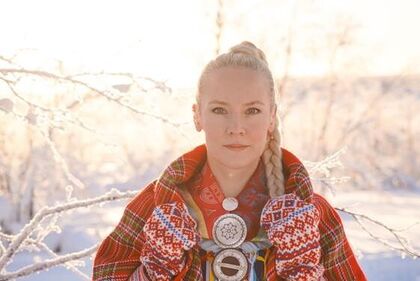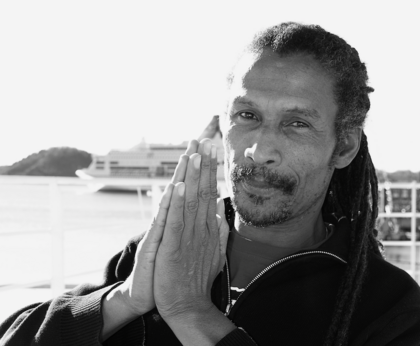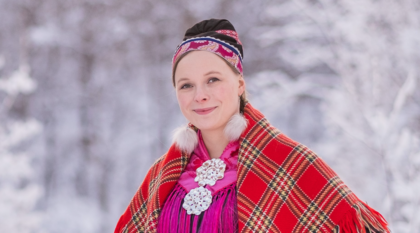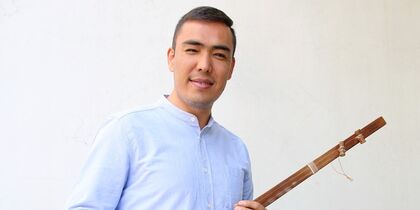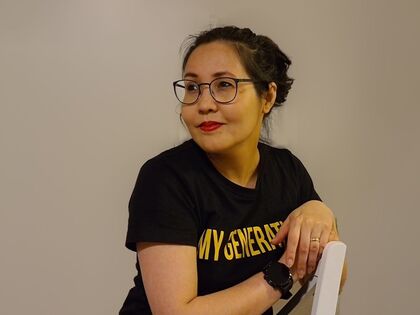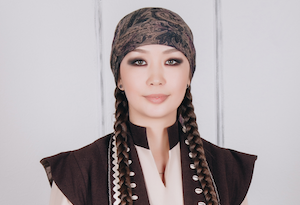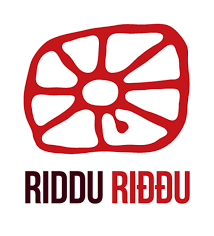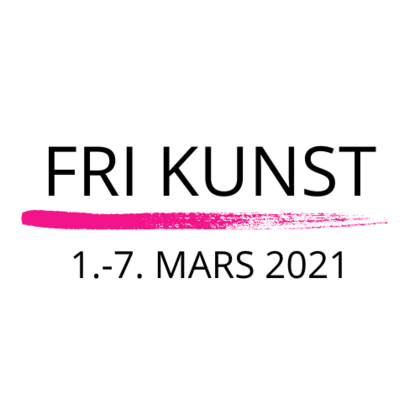URFOLKS RETTIGHETER OG KUNSTNERISK YTRINGSFRIHET
Urfolks kunst får stadig større oppmerksomhet og anerkjennelse på majoritetsbefolkningens kunstscener. Samtidig er urfolk over hele verden under press, våre landområder har ressurser som interesserer industri og kapitalinteresser. Urfolkskunstnere og kulturarbeidere er viktige forbilder og ledere i kampen for fremtiden til sitt folk og sin kultur. De står i fremste rekke, men er samtidig sårbare for angrep og usynliggjøring.
Arrangementet er på engelsk og vil også være en del av serien Safe Havens Freedom Talks.
INDIGENOUS PEOPLE'S RIGHTS AND ARTISTIC FREEDOM OF EXPRESSION
Indigenous art is gaining increasing attention and recognition on the art scenes of majority populations all over the world. At the same time, Indigenous Peoples around the world are under threat, land areas have resources of interest industry and financial powers. Indigenous artists and cultural workers are important role models and leaders in the struggle for the future of their people and culture. They are at the forefront, but are at the same time vulnerable to attacks, persecution and suppression.
The event will be in English, and will also be a part in the series Safe Havens Freedom Talks. Med støtte fra Fritt Ord og Norsk kulturråd.
Opening talk by/ Åpning ved:
Karima Bennoune - UN Special Rapporteur in the field of cultural rights/FNs Spesialrapportør for kulturelle rettigheter
Moderator:
Jan Lothe Eriksen - General Manager, Safemuse/Daglig leder, Safemuse
Panel:
Elle Márjá Eira - Sami musician and artist, composer and filmmaker and producer/Samisk musiker og artist, komponist og filmskaper
Cliff Moustache - Artistic leader of Nordic Black Theatre, Oslo/Kunstnerisk leder for Nordic Black Theatre
Sandra Márjá West - Director Riddu Riđđu Festivàla Norway, international indigenous festival/Festivalsjef, Riddu Riđđu Festivàla
In addition/ I tillegg deltar:
Hamid Sakhizada - Hazara artist and traditional musician from Afghanistan, now exiled in Norway/Hazara kunstner og tradisjonell musiker
Maryam Sharifi - Festival producer and initiator of the Afghan festival A Nicht With Buddha/Produsent og initiativtaket til festivalen A Night With Buddha
Yana Tannagasheva - Activist of the indigenous people Shor in Russia, now in exile in Sweden/Aktivist av urfolket Shor I Russland, nå i eksil i Sverige
Bios:
KARIMA BENNOUNE was appointed UN Special Rapporteur in the field of cultural rights in October 2015. Ms. Bennoune grew up in Algeria and in the United States. She is Professor of Law and Martin Luther King, Jr. Hall Research Scholar at the University of California-Davis School of Law, where she teaches human rights and international law. Sha has worked in the field of human rights for more than 20 years, including with governments and non-governmental organizations, and has carried out field missions, trial observation, election observation and research in many regions of the world. Professor Bennoune has also served as a consultant for UNESCO. She has frequently commented on human rights issues for the global media.
ELLE MÁRJÁ EIRA is an artist from Kautekeino who in recent years has marked herself both as an artist at the major International industry festivals, as a film music composer and film maker. As a musical artist she yoik in her native Sápmi tongue with a presence, rawness and ingenuity that transcends language barriers. She excels at the intersection of joik, electronic and Indigenous music. Member of the band Snoweye with Lucy Parnell and John Paul Jones (Led Zeppelin, Them Croocked Vultures). Elle Márjá is from a reindeer herding family in Kautokeino and belong to reindeer district 26 - Lákkonjárga. Deeply personal and rooted in the reindeer husbandry.
JAN LOTHE ERIKSEN has served as General Manager for Safemuse since its creation: A former musician and cellist of the Stavanger Symphony Orchestra, vice president of the Norwegian Musicians' Union, administrative director of the Norwegian Traditional Music and Dance Association (NFD) & Norwegian Traditional Music Agency, and initiator and first director of Riksscenen (National Venue for Traditional Music and Dance, Norway). Jan serves today also as the board leader of the organization Samspill International Music Network, and for a period in recent years he has been working as a cellist with the Sami artist Torgeir Vassvik.
CLIFF MOUSTACHE was born in the island nation of Seychelles. He is a film director, actor and playwright. From a young age, he was interested in different forms of media and art. In 1992, Moustache opened Nordic Black Theatre in Oslo, together with Jarl Solberg. In 2020 he received the Norwegian Art Council’s honorary award for his unique effort for young people.
HAMID SAKHIZADA has been based in Harstad since 2016. He is a highly acknowledged musician from Afghanistan, specialized in the Hazara traditional music and the instrument dambora. Sakhizada is a trained traditional musician, also working within popular music. He has given traditional Hazara music a more popular appeal, although this also has brought unwanted attention from groups who oppose minority Hazara culture, as well as religious traditionalists. With his prominent role in promoting this culture, Sakhizada has been subject to a steady campaign of threats and harassment, and forced to leave Afghanistan.
MARYAM SHARIFI is a cultural activist and festival organizer. She is the founder of the festival “a night with Buddha”. The festival was founded in Afghanistan in 2013 to commemorate the Taliban’s terrible destruction of Buddha statues in Bamiyan at 2001. The festival is organized with the aim of protecting and rebuilding the sculptures, which were part of the international world heritage. She is now living m living in Norway and continuing her activities there.
YANA TANNAGASHEVA is a representative of the Shor indigenous People from the Russian Siberia. She is well known internationally for her determined and uncompromising fight for the rights of indigenous peoples and her struggle against coal mining companies in the Kemerovo region. After several years of fighting against coal minina and pollution around Kaszas village, Yana received numerous threats from the coal company, police and the Russian intelligence services with the aim to stop her human rights activity. Yana with her family was forced to leave Russia and applied for refugee status in a European country. Today Yana continues to support her native community and preparing reports for UN human rights bodies on the situation with indigenous peoples’ rights in Russia.
SANDRA MÁRJÁ WEST is the festival leader of the international Indigenous festival Riddu Riđđu. The festival is Europe’s biggest, and one of the world’s biggest indigenous festivals. Riddu Riđđu spans 4 days with concerts, workshops, debates, films, theatre, dance and art exhibitions.
In addition to the festival itself in the middle of July, Riddu Riđđu works to raise awareness of Sámi and Indigenous art and issues to the public, in government, and to raise the voices of Indigenous Peoples.


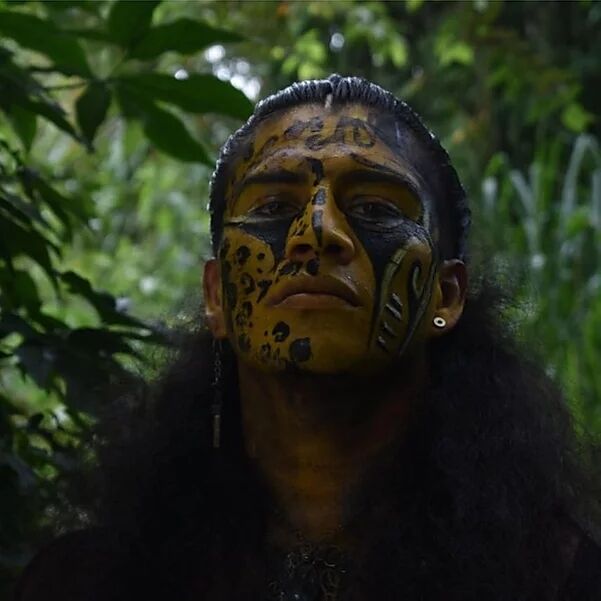
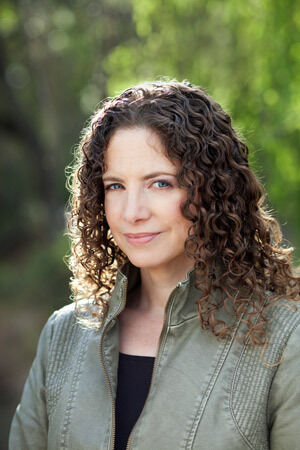
![20200800_Jan_Lothe_Eriksen_Safemuse_C-Even_Finnsrud_Musikkultur-kopi_jpg_and_FRI_KUNST_2021__URFOLKS_RETTIGHETER_OG_KUNSTNERISK_YTRINGSFRIHET_-_RIKSSCENEN_-_Schous_Kulturbryggeri[2]](https://img0.custompublish.com/getfile.php/4822357.1150.quqntwun7iabzk/420x0/6351890_4822357.png)
